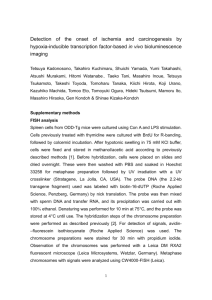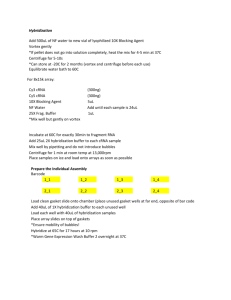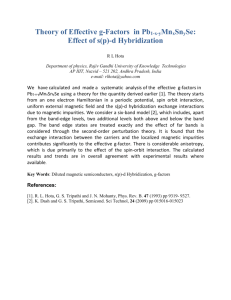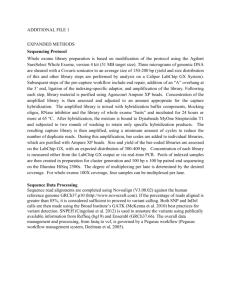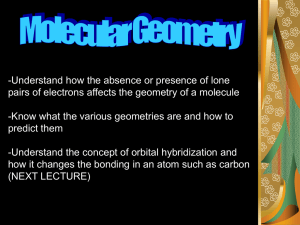Text S1. Fluorescence in situ hybridization for MDM2/CEN12
advertisement
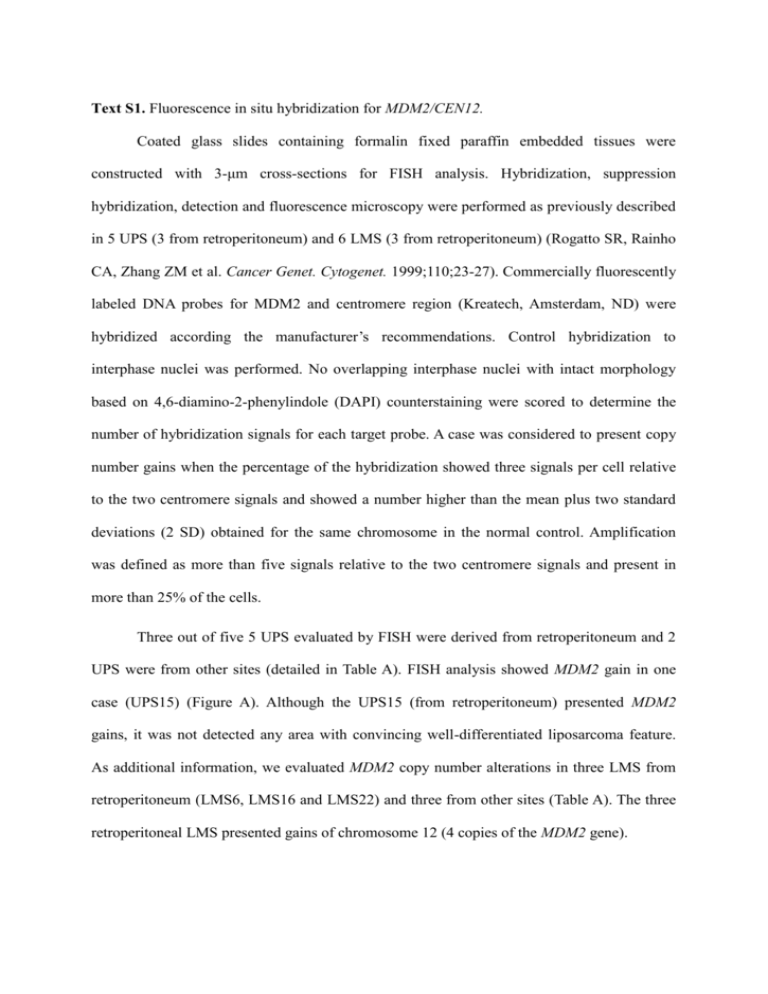
Text S1. Fluorescence in situ hybridization for MDM2/CEN12. Coated glass slides containing formalin fixed paraffin embedded tissues were constructed with 3-μm cross-sections for FISH analysis. Hybridization, suppression hybridization, detection and fluorescence microscopy were performed as previously described in 5 UPS (3 from retroperitoneum) and 6 LMS (3 from retroperitoneum) (Rogatto SR, Rainho CA, Zhang ZM et al. Cancer Genet. Cytogenet. 1999;110;23-27). Commercially fluorescently labeled DNA probes for MDM2 and centromere region (Kreatech, Amsterdam, ND) were hybridized according the manufacturer’s recommendations. Control hybridization to interphase nuclei was performed. No overlapping interphase nuclei with intact morphology based on 4,6-diamino-2-phenylindole (DAPI) counterstaining were scored to determine the number of hybridization signals for each target probe. A case was considered to present copy number gains when the percentage of the hybridization showed three signals per cell relative to the two centromere signals and showed a number higher than the mean plus two standard deviations (2 SD) obtained for the same chromosome in the normal control. Amplification was defined as more than five signals relative to the two centromere signals and present in more than 25% of the cells. Three out of five 5 UPS evaluated by FISH were derived from retroperitoneum and 2 UPS were from other sites (detailed in Table A). FISH analysis showed MDM2 gain in one case (UPS15) (Figure A). Although the UPS15 (from retroperitoneum) presented MDM2 gains, it was not detected any area with convincing well-differentiated liposarcoma feature. As additional information, we evaluated MDM2 copy number alterations in three LMS from retroperitoneum (LMS6, LMS16 and LMS22) and three from other sites (Table A). The three retroperitoneal LMS presented gains of chromosome 12 (4 copies of the MDM2 gene). Figure A. Interphase nuclei hybridized with MDM2/CEN12 (Kreatch, ND) showing normal pattern (two signals in green/CEN12 and two signals in red/MDM2) and gains of both probes in retroperitoneal UPS case. Table A. MDM2 copy number alterations by FISH analysis in UPS and LMS samples. Sample ID Location FISH UPS2 Retroperitoneum Normal UPS3 Retroperitoneum Normal UPS15 Retroperitoneum Gain UPS6 Lower extremity Normal UPS14 Trunk NA LMS6 Retroperitoneum Gain LMS16 Retroperitoneum Gain LMS22 Retroperitoneum Gain LMS15 Lower extremity Normal LMS20 Lower extremity Normal LMS5 Trunk Normal


